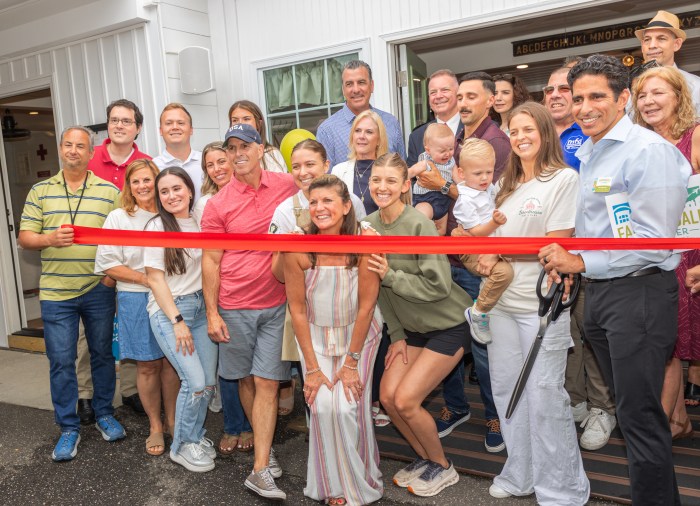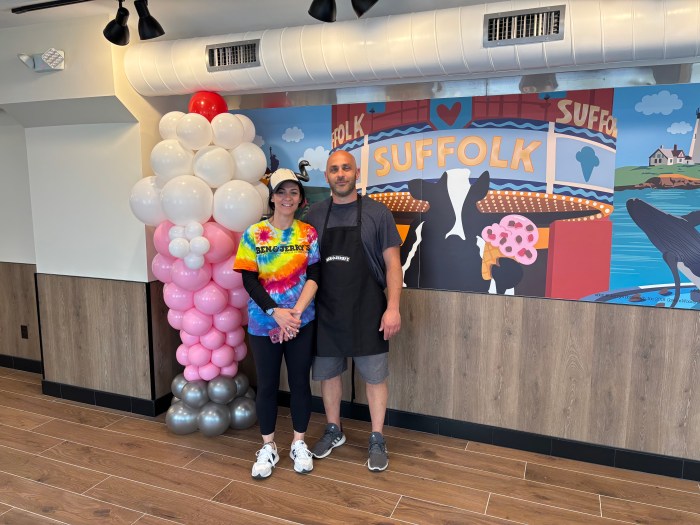Keeping Florida Waters Safe And Enjoying the Hunt
When mentioning hunting as a sport to people living on Long Island they think quail or deer; not alligator. But Richard Waterbury, who lives in Massapequa with his wife and three children, goes to Florida to hunt during alligator season.
An avid hunter since the age of 8, Waterbury enjoys hunting with his brother Jeffery who lives in Florida and owns the boat they go hunting in. Alligators are a part of life in Florida and they are quickly becoming used to humans as tourists who think they are harmless and give them scraps of food and alligators learn to equate humans with food. But alligators are not as harmless as some people think, as they are known to sneak into backyards and snatch a small dog off the lawn.
According to the Florida Wildlife Commission, there have been 16 reported fatal alligator attacks since the 1950s and 15 to 20 non-fatal alligator attacks occur each year. Some Florida residents are thrilled when the season begins and wish the hunters the best of luck.
Waterbury and his brother are licensed, have all the necessary permits required, and both take recommended classes. The Florida Wildlife Commission, along with the Coast Guard, monitors the hunters very carefully. An individual can’t just put a boat in the water and hunt an alligator. In Florida, hunters have to apply for a license each season, which runs from September to November. Hunters’ names get put into a lottery system; if their name is called then they receive tags, allowing them to enter the water. When they capture an alligator, a tag is put on it so the commission knows where the alligator was hunted and who caught it.
Hunting alligators is done at night with boats leaving the Black Hammock Inn at 8 p.m. or later. Waterbury said hunters shine a light in the water and an alligator’s eyes will turn red because of the light. They can tell how big an alligator is by the spacing between their eyes and the swirl they cause in the water. Hunters look for alligators eight feet or longer, Waterbury said.
He is just one of the four men on the hunting boat; two hunters and two navigators. While they are on the boat, there is no room for stupidity, which is why drinking is not permitted and smoking is not recommended either. Hunters have to stay sharp and focused because these animals will hurt you, Waterbury said and he has taken his own advice as neither he nor his brother Jeffery has been bitten by an alligator. Waterbury attributes this to being smart and doing things right. Also, hunters want to earn a good reputation so that they stand a better chance of getting picked for the next season.
“If you don’t do it right, it’s not worth doing,” Waterbury said.
Once a nice-sized alligator is spotted, the hunter will then shoot it in the back of the neck with a harpoon, which is attached to a buoy, according to United Wildlife control. The alligator will try to swim away so the hunters have to pull them back in. Once they are close to the boat hunters use a bang stick, which is a long metal rod with a bullet on the end of it to stun and finally kill the alligator.
They then tape his mouth closed just to be safe and pull him onto the boat. When all of this is done, the alligator is weighed and measured and the tags are put on. Hunters can’t take the full body of an alligator across the Florida State lines, so they have it processed in Christmas, Florida.
An average 8.5-foot alligator will produce 100 pounds of edible meat, Waterbury said. To date, Waterbury has caught two alligators and he eats all of the meat with his wife and three children.
According to Waterbury, fresh alligator meat is very healthy because it contains no fat and is all muscle. Native Americans used to call alligator meat the “fountain of youth” meat.
Waterbury said hunting should not be done for trophy purposes, it is the thrill of the hunt that gets him excited and he is also doing something nice for the residents in Florida by helping to keep the water safe. He is also keeping his family safe here on Long Island by teaching his children how to hunt safely, shoot a rifle properly, and defend themselves; although his children prefer fishing.

































